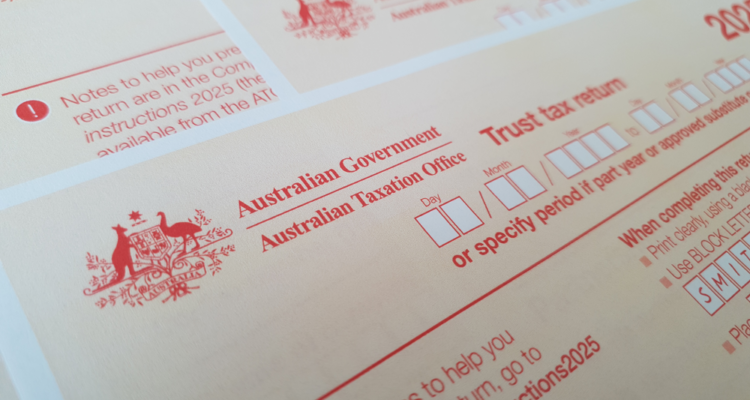
ATO Interest charges are no longer deductible – what you can do
November 5, 2025Leaving debts outstanding with the ATO is now more expensive for many taxpayers.
As we explained in the July edition of our newsletter, the Australian Taxation Office (ATO) general interest charge (GIC) and shortfall interest charge (SIC) will no longer be tax-deductible from 1 July 2025. This change applies regardless of whether the underlying tax debt relates to past or future income years.
With GIC currently at 11.17%, this is now one of the most expensive forms of finance in the market — and unlike in the past, you won’t get a tax deduction to offset the cost. For many taxpayers, this makes relying on an ATO payment plan a costly and inefficient debt strategy.
Refinancing ATO debt
Businesses can sometimes refinance tax debts with a bank or another lender. Unlike GIC and SIC amounts, interest on these loans may be tax-deductible if the borrowing is connected to business activities.
While tax debts often relate to income tax or capital gains tax (CGT) liabilities, interest could also be deductible where money is borrowed to pay other tax debts associated with a business, such as:
- GST
- PAYG instalments
- PAYG withholding for employees
- Fringe benefits tax (FBT)
However, before taking any action to refinance ATO debt, it’s important to carefully consider whether you will be able to deduct the interest expenses.
Individuals
If you are an individual with a tax debt, the deductibility of interest expenses on a loan used to pay that debt depends on whether the debt arose from a business activity.
-
Sole traders: If you are genuinely carrying on a business, interest on borrowings used to pay tax debts from that business is generally deductible.
-
Employees or investors: If your tax debt relates to salary, wages, rental income, dividends, or other investment income, the interest is not deductible. Refinancing may still reduce overall interest costs depending on the loan rate, but it won’t generate a tax deduction.
Example: Sam is a sole trader who runs a café. He borrows $30,000 to pay his tax debt, which arose entirely from his café profits. The interest should be fully deductible.
However, if Sam also earns salary or wages from a part-time job and some of his tax debt relates to employment income, only a portion of the interest would be deductible. If $20,000 of the tax debt relates to his business and $10,000 relates to employment income, then only two-thirds of the interest expenses would be deductible.
Companies and trusts
If a company or trust borrows to pay its own tax debts (such as income tax, GST, PAYG withholding or FBT), the interest will usually be deductible if it can be traced back to a debt that arose from carrying on a business.
However, if a director or beneficiary borrows money personally to cover those debts, the interest would not normally be deductible to them.
Partnerships
The position is more complex for partnerships. If the borrowing is at the partnership level and relates to a tax debt that arose from a business carried on by the partnership, the interest should normally be deductible.
However, if a partner personally borrows money to pay their share of the partnership tax debt, the ATO treats that interest as a personal expense — even if the partnership itself is carrying on a business activity.
Practical takeaway
Leaving debts outstanding with the ATO is now more expensive than ever because GIC and SIC will no longer be deductible from 1 July 2025.
Refinancing your ATO tax debt may provide a potential tax deduction and could also give you access to lower interest rates, depending on your circumstances. The key is to distinguish between tax debts that relate to business activities and those that don’t. For mixed situations, you may need to apportion the deduction.
If you’re unsure how this applies to you, contact Indigo Financial for tailored tax and finance advice. With the right strategy, you can manage tax debts more effectively and avoid costly surprises.
Contact Indigo Financial on (08) 8212 8585 if you need help with any of your accounting and taxation needs.
Note: The material and contents provided in this publication are informative in nature only. It is not intended to be advice and you should not act specifically on the basis of this information alone. If expert assistance is required, professional advice should be obtained.
Back to News Page



